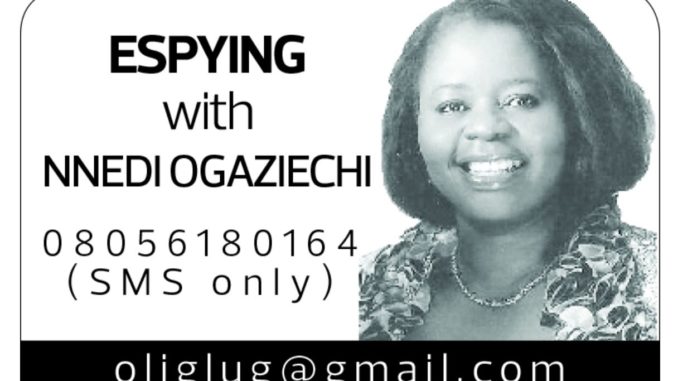
The Nigerian general elections are billed for February 2019. That is precisely in less than four months. There are 91 registered political parties who might be fielding candidates for the different elective positions. Ninety one is such an unwieldy number of political parties for a country struggling with the development of its democracy and country if you ask me but most of them are there to ambush the system post-election either with misspelt names or exclusions.
However, as I write, about 99% of the so called registered political parties seem very lethargic about introducing their candidates to the Nigerian electorate. INEC had published the names of candidates that emerged after the party primaries in early October. Even though there is still a window for possible substitutions, which might be for a negligible number of candidates.
So even with the mega parties like the PDP and APC, not much information is coming from and about the candidates for the voters to be able to evaluate their capacity for the elective posts they would be vying for. The much voters hear from the Presidential candidates of both parties are pretty much the regulars the system has been tolerating since 1960 – candidates telling the people why the other must not be voted for.
In other democracies, elections are taken seriously. From ward congresses to party primaries, aspirants who make themselves available for elective posts are thoroughly scrutinised, personalities, professional and private histories and achievements are laid bare by the media and individuals that have had any form of associations with the aspirants. This is done in a way to expose how suitable or not a candidate is for a position and most voluntarily on the bases of information in the public space drop off.
No country demands sainthood from its aspiring leaders but there are often benchmarks for public office holders. In most cases, society expects that like Caesar’s wife, they must be without reproach. However, we have a flawed electoral system where candidates are often shielded by the political parties, the godfathers, the party financiers, political torn coats, party members and all those who feel the victory of such candidates would be expedient to them. This is precisely what has been wrong with the Nigerian democracy.
In the business world, employment of staff is based on the presentations made by candidates and an evaluation of their Curriculum Vitae. Successful companies pride themselves with having and employing the best people for the job.
In comparison, countries that run democracies normally demand total information from the candidates. The reason is, individuals are often a sum total of their private and professional lives and achievements. The capacities for individuals to excel in life are often due to the choices they made in both their private and professional lives. Competences and excelling in these two areas often signpost abilities.
In Nigeria, however, there seems to be a deliberate attempt since independence to either hold back information about candidates or sieve the information that can influence the decision of the voters negatively. Most avoid public debates.
The essence of laying everything about candidates bare is for the voters to have information. In Nigeria there has been a vicious cycle of other people marketing candidates by saying things on their behalf which is not bad as it is equally done elsewhere only that there is a remarkable difference in the country.
The voters here are held hostage by a systemic deliberate intent to conceal the truth about candidates and their capacity at all levels and they recite vague political rhetoric that is targeted at confusing the voters majority of whom are illiterates.
The political class has been very unfair to Nigerians. They deliberately ambush the voters by scheming electoral processes tailor-made in their favour. The system is skewed towards empowering the political class rather than the people.
It is amazing how a timetable is made to give only about two months for campaigns in a country the size of Nigeria. How will the campaigns be pervasive enough to reach the nooks and crannies of the country for the people to really have information and make choices based on that? It is no wonder elections in Nigeria often get so litigious post elections.
The voters hardly get enough information from and about candidates. In a country with a huge illiterate population, it is not fair for politicians to continually hug the social media as a means of campaign leaving behind the vast population of those outside the internet coverage or even access.
The result of this often surreptitious stampede on election timetable vis a viz campaign period is that the voters are often not aware of those standing for elections and their capacity. In their confusion, the politicians plan all forms of strategies to rig elections. If the voters know enough about candidates, it would be much easier to make valid choices based on enough information.
In Nigeria, one rarely listens to candidates talk comprehensively about their vision and mission in convincing terms. They usually employ the flawed mathematical strategy of arriving at answers without well set out formular. But sadly it shows on all tiers of government in the level of development in the country. There seems to be no plans for a deliberate and well thought out political plans that can engender development. The country seems to endlessly grope in the dark because candidates often have a free pass into elective positions as they consistently ambush helpless voters.
For an election that is less than five months away, how many candidates can pass real crucible electoral tests in other climes? Underdevelopment would continue till there is a deliberate review of the electoral process and system.
Last Line: Leah Sharibu and other abducted women and girls still in captivity
END

Be the first to comment